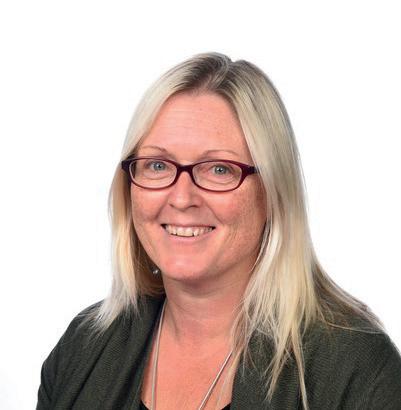
3 minute read
Modern Foreign Languages
Learning a language is like discovering a new world. Pupils at Bede’s Prep study French from Reception; at this young age, children are able to pick up accurate pronunciation of French words easily.
In Years 1 and 2 pupils develop their languages skills further through a plethora of activities such as games, songs and role plays. We also use a range of media (such as books and video clips) in our lessons to tell authentic stories in the language. Repetition is key in the children’s learning and we consistently revisit a range of songs and rhymes which helps the children to cement their learning and increase fluency in their target language.
Alongside speaking the language itself, learning a foreign language provides an opening to other cultures; through their French lessons, pupils in Years 1 and 2 start to deepen their understanding of the world.
In Years 1 and 2, pupils revisit and extend the basic vocabulary learned in Reception to craft full sentences in French and gain the confidence to begin speaking the language in a conversational setting.

Children learn through games, songs and video clips, as well as building their literacy skills by starting to read and write single words and simple sentences in French. Pupils learn to say their names, ask someone else’s name, tell someone their age and ask how old someone else is. Pupils also start using French numbers confidently, and can name different parts of the body.
Other basic vocabulary learned includes the days of the week, months and colours, and we also cover the topics of clothes, home, weather, family and food.
What skills will my child develop?
Pupils start building sentences and linking sentences together, and are taught to:
• Listen attentively to spoken language and show understanding by joining in and responding
• Explore the patterns and sounds of language through songs and rhymes, and link the spelling, sound and meaning of words
• Engage in conversations; ask and answer questions
• Appreciate stories, songs, poems and rhymes in the language
Hints & Tips for Home
• www.bbc.co.uk/bitesize
Marie
Allirot
Head of Languages

Drama
Drama
At Bede’s, we want to encourage meaningful participation and enjoyment of drama and theatre, inside and outside of school. We believe in ‘Drama for All’, and offer opportunities to engage on a range of different levels. Pupils are taught drama skills and techniques during lessons and pupils are encouraged to seize the many opportunities available to perform. In the Drama department, we are committed to excellence. We share a love of performance and collaboration and a desire to inspire pupils to share this. We are fortunate to have drama specialists, who teach the curriculum, activities and as the children grow up, we gradually scale up the ambition and complexity of the skills taught, productions staged and the scripts we study. Drama is an art form that is a practical activity, an emotional process and an intellectual discipline. At its core are the concepts of communication, shared experience, understanding and empathy. Drama involves the creation of imagined characters and situations which are enacted within a safe environment and a designated space. Like all arts subjects, drama helps children to make sense of their world and their place within it. Drama enables children to express themselves creatively, imaginatively, and to communicate with others effectively. It is a vital way of communicating in school and in public life. It builds confidence, teaches respect for others, and aids understanding of different needs, cultures, and lives. Drama is an effective teaching tool, as practical learning is crucial to understanding and becomes a valuable learning method when employed to illuminate other areas of the curriculum.
In Year 1 and 2, the children experience drama through the wider curriculum, taking part in activities linked to a variety of topics. In English, they have the opportunity to act out specific scenes from a range of texts, as well as hot seating the characters. They also have opportunities to take part in termly workshops, in the Prep School Theatre, run by a drama specialist.
The Year 1 and 2 children perform a play at the end of the Autumn Term. They very much enjoy preparing for the Christmas Nativity. The children learn their lines and rehearse songs in order to perform to an audience of family and friends.

In Drama, the overall focus is to promote self-confidence, the ability to work with others, communication skills, self-discipline, creativity, empathy and understanding – all of which are valuable life skills.
What skills will my child develop?
• Developing confidence
• Team building and collaboration
• Development of empathy and an awareness of others
• Presentation skills and transferable ‘life’ skills
• Development and improvement of creativity
Hints & Tips for Home
• For LAMDA information: https://www.lamda.ac.uk/lamda-exams/our-exams











